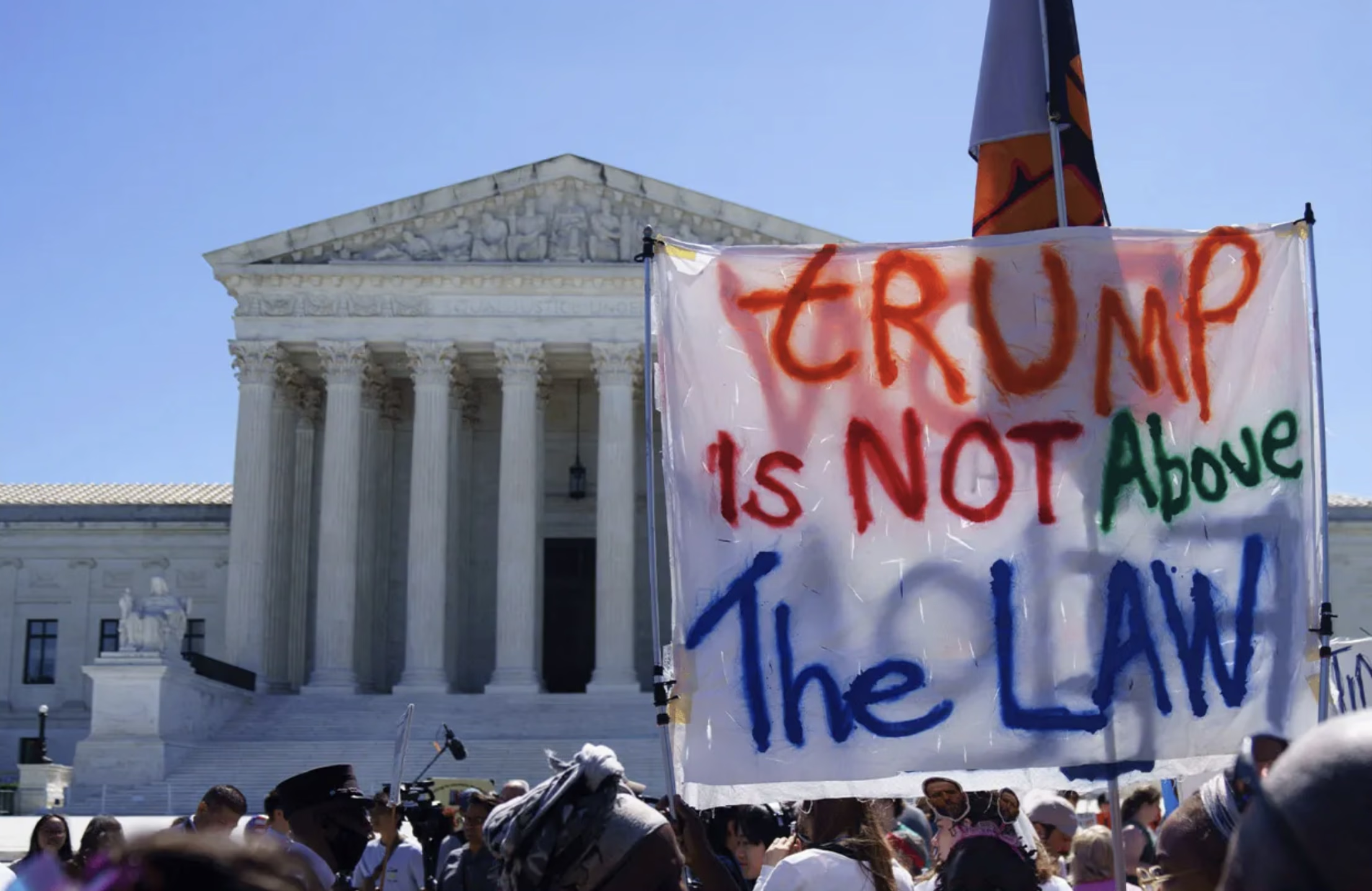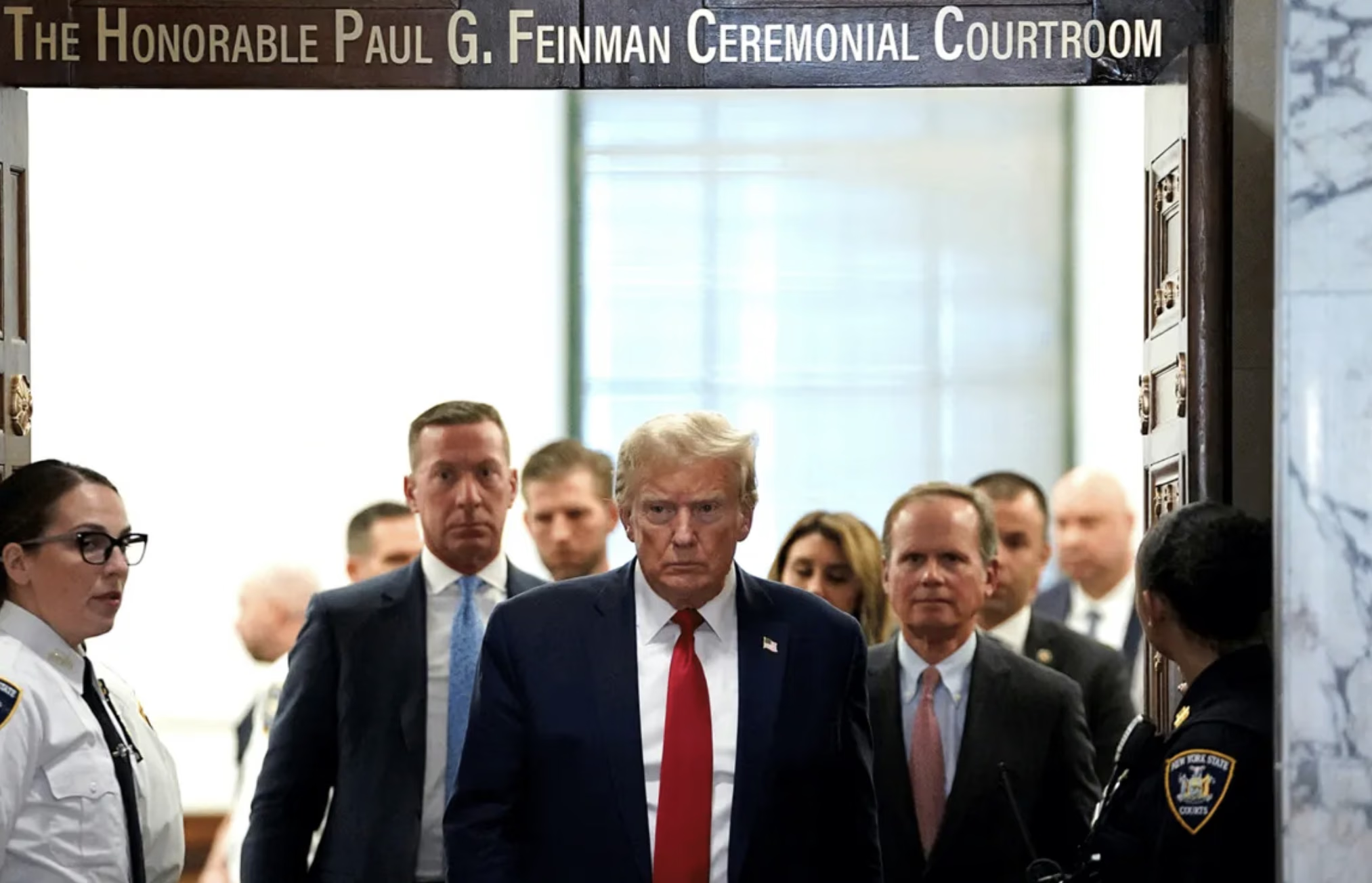Donald Trump has returned to the White House with a promise of retribution against those he deems enemies. Nine months on, the scale of that program—or threat—is becoming clear.
The president openly pressures the attorney-general to pursue investigations of political opponents. He has proposed stripping broadcast licenses from television networks he accuses of bias and seeks to pressure law firms he considers hostile, including by revoking government contracts and security clearances. These moves are pursued with such theatrical energy that, critics note, the sheer brazenness risks obscuring their corrosive and unprecedented nature.
His recent call for the Justice Department to prosecute specific politicians is an example of what, half a century ago—when similar conversations surfaced in Oval Office tapes—sparked scandal and ultimately forced Richard Nixon’s resignation. Today such actions are reduced to a passing news cycle, even as Trump accelerates the expansion of presidential power to advance his agenda.
On Thursday he signed an executive order on “domestic terrorism and political violence,” vowing to investigate the activities of “wealthy individuals” allegedly funding “professional anarchists and agitators.” Among those he named were billionaire George Soros and LinkedIn founder Reid Hoffman. Just hours later the Justice Department announced an indictment against former FBI director James Comey, whom Trump had recently declared “guilty to the core.”

Former FBI Director James Comey Indicted for False Testimony in the Case of Russian Interference in the 2016 Election
He Was One of the Initiators of the Narrative the Obama Administration Advanced Against Intelligence Findings

Trump Announces RICO Investigation Against George Soros
Billionaire Accused of Financing Violent Protests and Undermining Political Stability
He justified the looming crackdown on leftist organizations by citing two high-profile episodes of violence: the killing of conservative activist Charlie Kirk on a university campus, and an armed attack on immigration officials in Dallas in which detained migrants were killed and injured.
According to the president, his actions are urgent and necessary. He frames the pursuit of political opponents as a fight against lawbreakers and members of the “deep state” who undermined his first term. Trump’s supporters argue that the media must be held accountable for bias and “fake news,” and that business, weakened by political corruption and a turn toward diversity, requires strong state intervention. Trump and his allies insist that it was the Biden administration that truly eroded presidential norms.
Different Approaches of Trump and Biden to Power and Threats
During four years of Democratic rule, Trump was indicted four times and convicted once. Several of his closest associates—including former 2016 campaign chief Steve Bannon and trade adviser Peter Navarro—received prison sentences for contempt of Congress. Others were charged for their alleged involvement in efforts to overturn the 2020 election results.
The Biden administration, during the pandemic, pressed social media companies to restrict what it deemed harmful speech. The president also sought to expand executive authority to advance his agenda—from student debt cancellation and mandatory vaccination to protecting transgender rights in schools and introducing environmental regulations. Trump’s supporters argue that the current turn is merely a mirror image of those actions. But the differences in approach are stark.
Trump has indeed faced criminal prosecution, but only two cases were initiated by federal authorities—and both by a special prosecutor appointed independently of Biden’s Justice Department. Biden himself, unlike the current president, largely refrained from commenting on those proceedings. Many of his executive orders were later struck down by the Supreme Court, which for now grants Trump considerable leeway. Trump, meanwhile, cultivates the image of a politician unfairly persecuted, a narrative that resonates with voters convinced the system is biased against them. His confidence has been bolstered by last year’s Supreme Court ruling that largely shields U.S. presidents from criminal liability for actions taken in the exercise of their powers.

Trump wrote on Truth Social that Comey was “guilty to the core” and urged his criminal prosecution.
At the heart of the dispute over presidential power and “retribution” lies a fundamental divergence between Biden and Trump in their view of the main threats to America and the world. For Trump’s inner circle, the obvious dangers are the advance of liberal values, mass migration, imbalances in global trade, and excessive government interference. At a memorial service for slain conservative activist Charlie Kirk, longtime Trump adviser Stephen Miller, the architect of his migration policy, declared: “America’s legacy reaches back to Athens, to Rome, to Philadelphia, to Monticello. You cannot imagine how determined we are to save this civilization. To save the West, to save this republic.”
This vision stands in stark contrast to the outlook Joe Biden articulated during his presidency. In his words, the defining divide of the era lay not between the West and its enemies, but between democracies and authoritarian regimes. “We are at an inflection point between those who argue that autocracy is the best way forward and those who understand that democracy is essential,” he said in 2021. “We must prove that democracies can deliver for their people in a changing world.” Critics now argue that Trump is not only abandoning that agenda but steering the country toward authoritarianism.
The Case Against Comey and the Campaign of Pressure on Opponents and the Media
For those who see Donald Trump as aspiring to autocracy, the case against James Comey was only the latest example of a president wielding power to punish critics out of personal motives. Days before the indictment for false testimony to Congress and obstruction of justice, Trump demanded that Attorney-General Pam Bondi prosecute not only the former FBI director but also New York Attorney-General Letitia James and California senator Adam Schiff, accusing them of conspiring against him. “We can’t wait any longer, this is killing our reputation and trust,” he wrote. “They impeached me twice and indicted me five times—FOR NOTHING. JUSTICE MUST PREVAIL, NOW!!!”
The federal prosecutor handling the Comey and James cases resigned under pressure and was replaced by a lawyer who had previously represented Trump. Reports say she personally presented the Comey file to the grand jury, which then issued the indictment. “It is unprecedented for a president to effectively direct his people to indict someone simply because he is angry with them,” Loyola Marymount University law professor Laurie Levenson told the BBC.

During Biden’s four years as president, Trump was indicted four times and convicted in one case.
Other critics of the president have also come under fire. In August federal agents searched the home and office of former national security adviser John Bolton as part of an investigation into his handling of classified documents. According to media reports, former CIA director under Barack Obama, John Brennan, is also under investigation.
Trump has also escalated his campaign against major media outlets, which he claims are breaking the law by being excessively critical. He filed multi-billion-dollar lawsuits against The New York Times and The Wall Street Journal, and previously settled similar cases with ABC News and CBS News. Last week the Federal Communications Commission was thrust into controversy after its chairman, Brendan Carr, pressed local broadcasters to pull one of the most popular evening comedy shows off the air following host Jimmy Kimmel’s jokes about Charlie Kirk, his alleged killer, and Trump’s reaction to the tragedy. The president himself declared that networks giving him “bad press” could become targets of pressure.
Even prominent Republicans reacted sharply. Senator Ted Cruz of Texas compared Carr’s threats against media companies to mafia tactics, while Senator Rand Paul of Kentucky called them “absolutely unacceptable.”
From the left, the comparisons were darker still. “Trump is the Hitler of our time,” chanted protesters as the president dined with aides at a Washington restaurant. “Those who think we are merely drifting toward authoritarianism are wrong—we are already there,” said Democratic senator Chris Van Hollen of Maryland.

Trump justified his planned measures against leftist groups by citing two recent and high-profile acts of violence, including the killing of Charlie Kirk.
The administration dismisses such assessments as baseless and hysterical, attributing them to “Trump derangement syndrome.” The White House directly links this rhetoric to rising violence, including Kirk’s killing. “If you want to stop political violence, stop telling your supporters that everyone who disagrees with you is a Nazi,” Vice President J.D. Vance said this week.
The U.S. in the Global Context of “Democratic Backsliding”
The notion of “democratic backsliding” and the question of whether it is occurring in the United States cannot be reduced simply to debates about twentieth-century fascism. The V-Dem Institute at the University of Gothenburg conducts an annual assessment of the state of democracies worldwide. According to its data, 72 percent of the world’s population now lives under autocracies—the highest share since 1978.
In 2024 forty-five countries showed movement toward more authoritarian rule, including Hungary, Turkey, Mexico, Greece, and Ghana. These states exhibited similar patterns: restrictions on free expression, pressure on elections and the judiciary, erosion of judicial independence, shrinking space for civil society and academic freedom. The tightening of government control over institutions and individuals occurred in different sequences and at different speeds, but the outcome was the same.

Protesters gathered outside the U.S. Supreme Court in July 2024.
Researchers now warn that the U.S. is showing troubling signs of the same process—at a pace unprecedented in modern American history. “The expansion of executive power, the erosion of Congress’s budgetary authority, attacks on independent institutions and the media, and the purges and dismantling of state structures—classic strategies of autocratizers—appear to be unfolding in practice,” the latest report, published in March, concluded. “The silence of critics, fearful of retaliation, has already become the norm.”
Retribution as the Central Motif of Trump’s Campaign
In March 2023, speaking at a rally in Waco, Texas, Donald Trump was consolidating his position in the campaign to return to the White House. A week earlier he had publicly suggested that he was about to be indicted in New York on charges of fraud related to hush-money payments to former porn star Stormy Daniels ahead of the 2016 election. Those charges, for which he was later convicted, were formally filed five days later.
On that sweltering day before a crowd of 15,000 supporters, Trump made a series of pledges. “I am your warrior,” he declared. “I am your justice. And for those who have been wronged and betrayed, I am your retribution.”

“Sometimes revenge can be justified,” Trump said in an interview.
The theme of retribution became one of the central motifs of his campaign speeches over the following year and a half. At times he said his “success” would be retribution. In other moments, such as in an interview after his May criminal conviction, he was more direct. Speaking with television host and psychologist Dr. Phil, Trump remarked: “Sometimes revenge can be justified” and “revenge takes time.” In response to a question from Fox News host Sean Hannity about retribution, he said he had every right “to go after Democrats based on what they’ve done.”
On Friday Trump commented on the charges against James Comey, insisting it was “a matter of justice, not revenge,” but adding that he expected “others” to follow. “It’s also about making sure this cannot continue,” he told reporters at the White House. “These are sick, radical left people, and they cannot be allowed to get away with it.”
